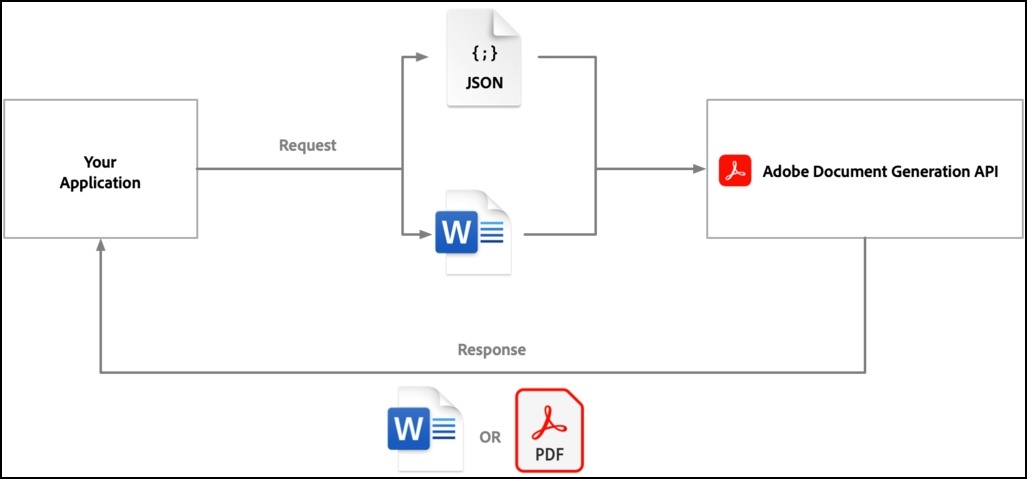Overview
What is Document Generation?
Document Generation is the method of creating business-critical documents like invoices, contracts, sales proposals, and work orders automatically.
Documents of such type are made up of the static content that will remain unchanged and the dynamic content that is customized for the audience or recipient of the generated document. E.g.: Say when a bank draws up a contract for a loan. Each contract needs to be customized for every customer. It will use the same template, but the details for each customer will be different.
Document Generation Process

Components of Document Generation
Document Template
In Document Generation, a document template is a pre-built customized document with a set of predefined template tags for generating dynamic content. During the Document Generation process, these template tags derive values based on the input data and get replaced by the actual data accordingly.
Template Tags
The rules which indicate the dynamic content in a document are defined in the form of template tags. These template tags, when placed into a document (e.g. docx) convert it into a document template.
To learn more, please visit Template Tags
Input Data
Document Generation is a data-driven process. Based on the input data, template tags in the document template are replaced and dynamic content of the final document is generated. Each set of input data may produce a different document from the document template.
Document Generation API
Document Generation API accepts a document template (with template tags) along with the input data to generate the final document. The final document is generated by replacing all the template tags in the document template with the dynamic content based on the actual values corresponding to the data input.
To learn more, please visit QuickStarts